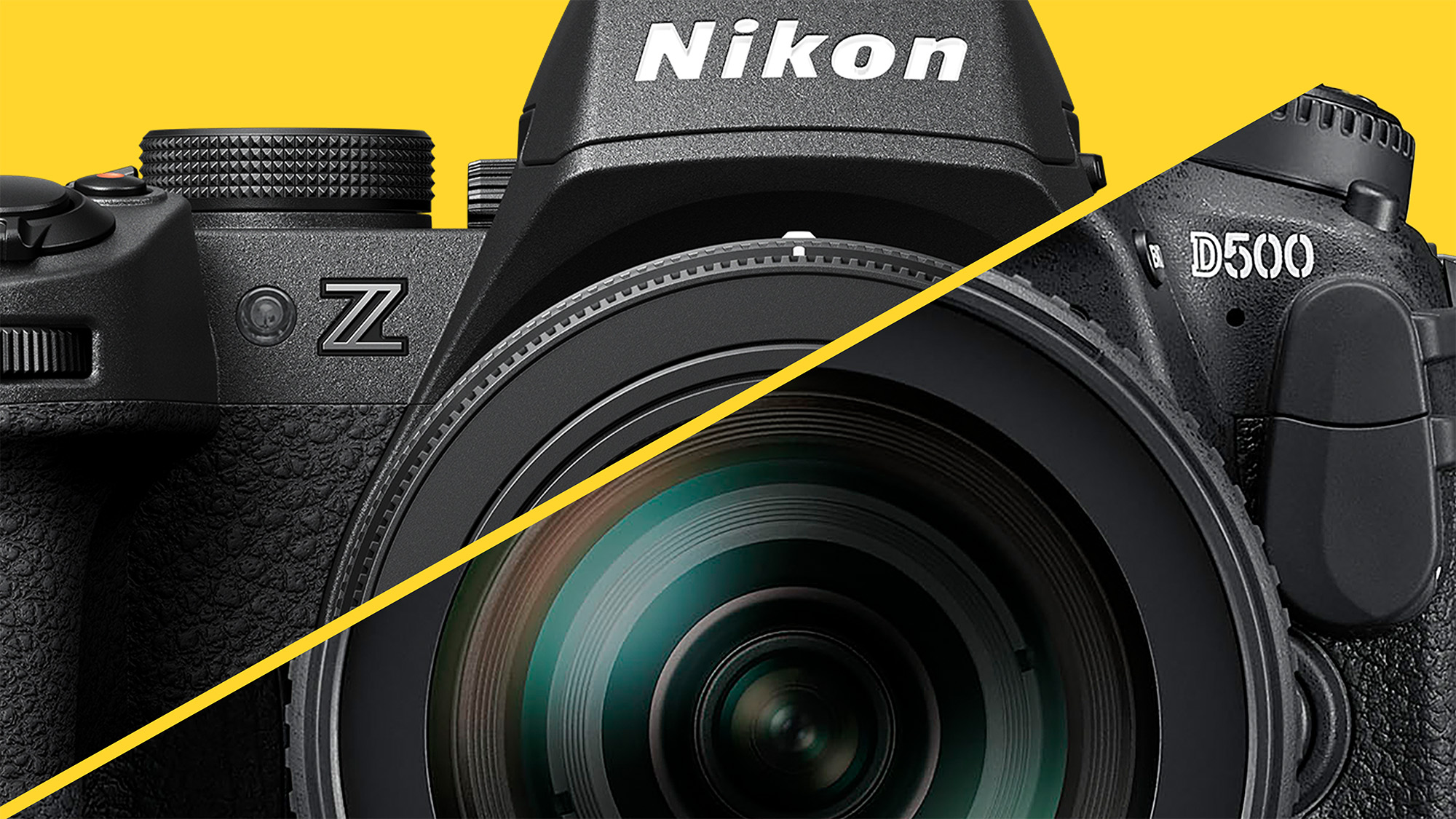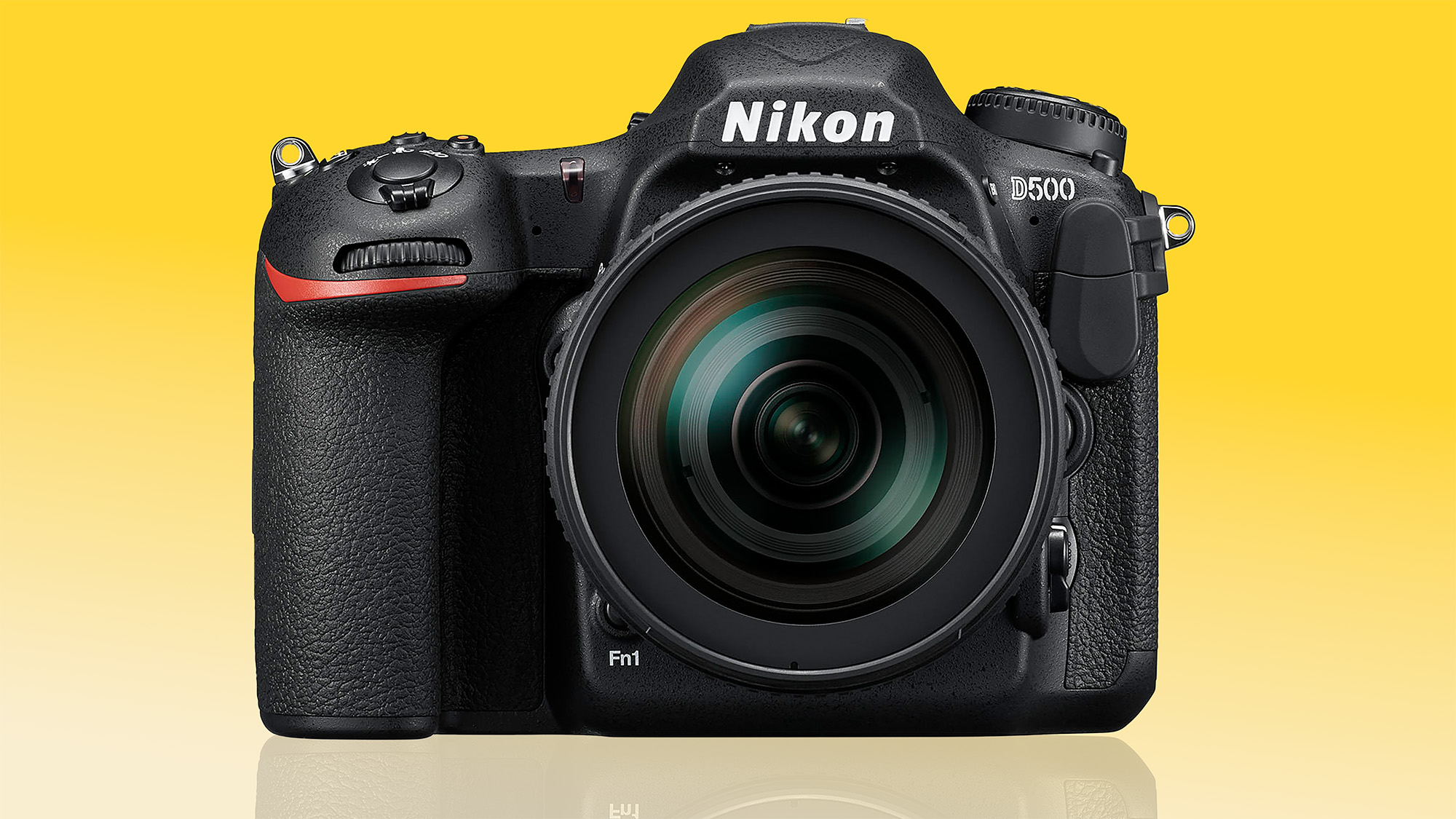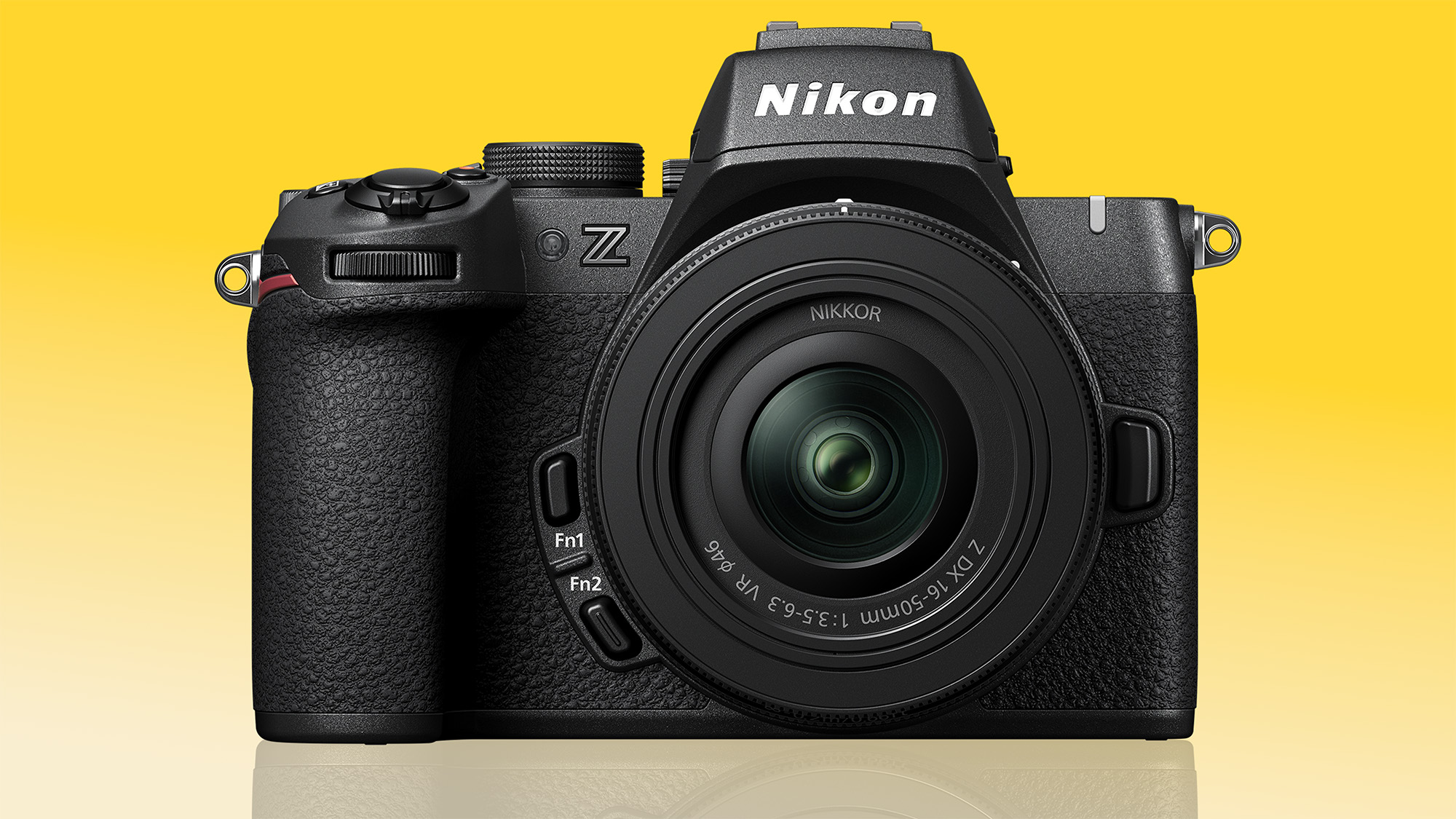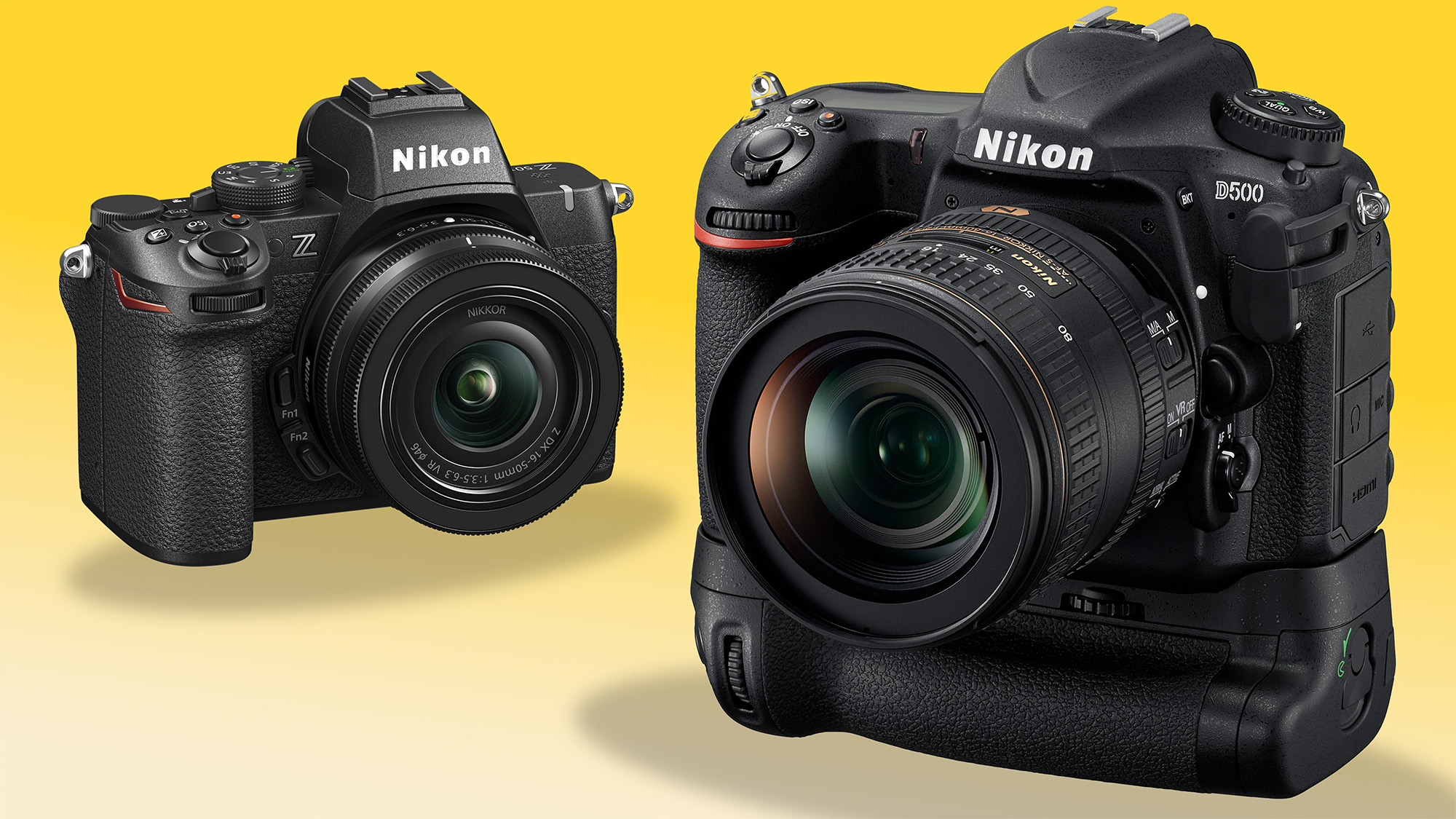Is the Nikon Z50 II the mirrorless D500 successor I’ve been waiting for?
The Nikon Z50 II’s flagship Z9 tech is as close as we’ve come to a Z-Series Nikon D500. The question now: Do we even still need one?

I have never understood why Nikon hasn’t released a Z-Series successor to the very highly regarded Nikon D500. A 'Z500' would surely be one of the best APS-C mirrorless cameras on the market and – in my mind – a license for the Big N to print money. Now that the Nikon Z50 II is finally here, it’s clearly not a Z500 – but it is giving me some serious D500 vibes. And that can only be a good thing.
You see, the D500 was launched at the peak of the power of the DSLR. To this day it’s one of the most advanced F-mount Nikons in existence, and hands-down the most powerful DX DSLR that the company ever released. It holds up against the Nikon Z50, Z30 and Z fc and, in many areas, betters them. If you’re a Nikon photographer who’s into sports or wildlife photography, chances are you’ve owned, still own or lusted after a D500.
So, how do the two APS-C cameras stack up against each other?
The Nikon D500: A professional APS-C Nikon

Don’t be fooled by the crop sensor; the Nikon D500 is a pro-grade camera, deserving of its DX flagship moniker. It was launched alongside the mighty Nikon D5 back in January 2016. This was by no means a coincidence, because the D500 inherited some serious tech from Nikon’s then-range-topping flagship.
Both cameras debuted the Expeed 5 image processor and the same 153-point AF system. Add in a zippy 10fps maximum burst speed (not quite the D5’s 12fps), XQD card support and top-notch weather sealing, and it’s not surprising that the D500 became the preserve of wildlife and sports photography hobbyists.
The camera was discontinued in 2022, but has held its price remarkably well on the used market. This is likely because we’ve yet to witness a DX Z-series camera that can hold a candle to the D500. Until now…
The Nikon Z50 II’s Z9 DNA

Just as the D500 boasted flagship tech, the Z50 II has a lot in common with the flagship mirrorless Nikon Z9. Both cameras boast the Expeed 7 image processor and pre-release capture. And while the Z50 II only has 209 AF points, compared to the Z9’s 493, AF tech – although not identical – has at least trickled down from the top in the form of subject detection, 3D tracking and subject-tracking AF.
Get the Digital Camera World Newsletter
The best camera deals, reviews, product advice, and unmissable photography news, direct to your inbox!
While the Z50 II cannot match the Z9’s blistering 120fps burst shooting (11MP) or 20fps RAWs, it can still capture 11fps RAWs – respectable, for a mechanical shutter – and 30fps JPEGs via its electronic shutter. The Z50 II beats the D500 when it comes to video capabilities, too, with cropped 4K 60p support and FullHD 120p, but this is to be expected in 2024.
So, the Nikon Z50 II boasts advanced flagship tech from the Z9, just like the D500 featured flagship Nikon D5 DNA. But where does the D500 still beat the Z50 II?
The Nikon D500 is still a pro-grade machine
Well, for starters, the D500 not only has two memory card slots but one is reserved for XQD / CFexpress B cards, while the Z50 II only has one SD card slot. The other differences are largely physical. The D500 is known for having a very rugged, extensively weather-sealed body.
And while the Z50 II is weather-sealed, Nikon hasn’t made a big deal about it, suggesting that it’s not up to the standard of, say, the Z8 and Z9. Finally, the D500 has a joystick, which is lacking on the Z50 II. That said, the Z50 II does have more direct-access controls than the Z50, which is great news.
So, can the Nikon Z50 II be considered a spiritual successor to the D500?

I don’t think the Nikon Z50 II can be considered a true spiritual successor to the coveted D500 – but it isn’t supposed to be, either. Nikon has made it clear that the Z50 II is a hybrid offering, intended to appeal to modern photographers and videographers.
But don’t let talk of vlogging and social-media-friendly features deter you. I will reserve my final judgment until the Digital Camera World review, but this looks like a capable and powerful photography machine.
If you’re fed up waiting for a ‘Z500’, then I think the Z50 II provides plenty of food for thought. After all, the biggest sticking point with the Z50 for wildlife and sports photographers was the lackluster AF. And the new specs suggest that Nikon has fixed this and then some.
Sure, the rugged nature of the D500 is hard to beat, but Nikon doesn’t turn out fragile cameras. You can bet your bottom dollar that you won’t need to treat the Z50 II with kid gloves. The only real downgrade is the SD card slot. It seems unfortunate to me that a camera capable of reaching 30fps burst speeds doesn’t have a CFexpress slot. Then again, pick up a couple of Delkin Blacks and I’m sure you’ll be fine.
When it comes to AF, burst shooting, video and all-around processing power, it looks like the Z50 II is definitely going to be a step up from the D500. Add in some decent Z-mount glass – which we all know is top notch – and where the Z50 failed as a wildlife and sports camera, it looks like the Z50 II is definitely fit for purpose.
Finally, you have to consider the price. The Nikon D500 launched at a pro-grade price of $1,999.95 / £1729 (body only). Compare that to the new Nikon Z50 II and you could be getting one heck of a deal in comparison. After all, the latter is priced at just $909.95 / £849.
I don't think the original Z50 was fit to replace the D500. But I think the Z50 II just might be a suitable mirrorless alternative – review pending. But I'd still love to see a truly rugged DX Z-Series flagship one day.
How about it, Nikon? Pretty please!
Interested in all things Nikon? Check out the best Nikon cameras and the best Nikon lenses.

Mike is Digital Camera World's How To Editor. He has over a decade of experience, writing for some of the biggest specialist publications including Digital Camera, Digital Photographer and PhotoPlus: The Canon Magazine. Prior to DCW, Mike was Deputy Editor of N-Photo: The Nikon Magazine and Production Editor at Wex Photo Video, where he sharpened his skills in both the stills and videography spheres. While he's an avid motorsport photographer, his skills extend to every genre of photography – making him one of Digital Camera World's top tutors for techniques on cameras, lenses, tripods, filters and other imaging equipment – as well as sharing his expertise on shooting everything from portraits and landscapes to abstracts and architecture to wildlife and, yes, fast things going around race tracks...
